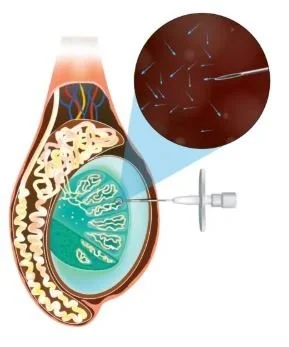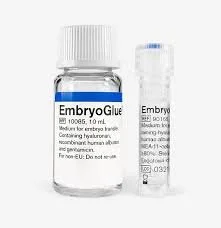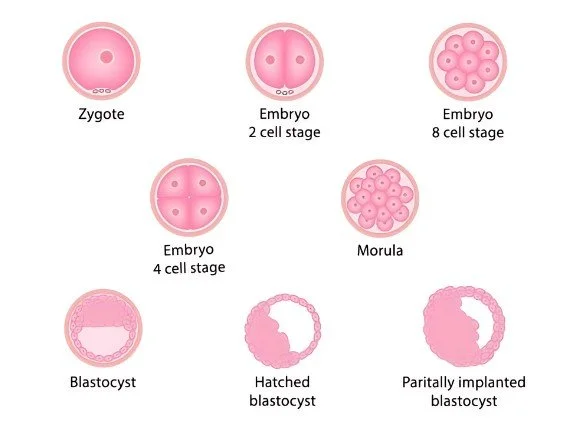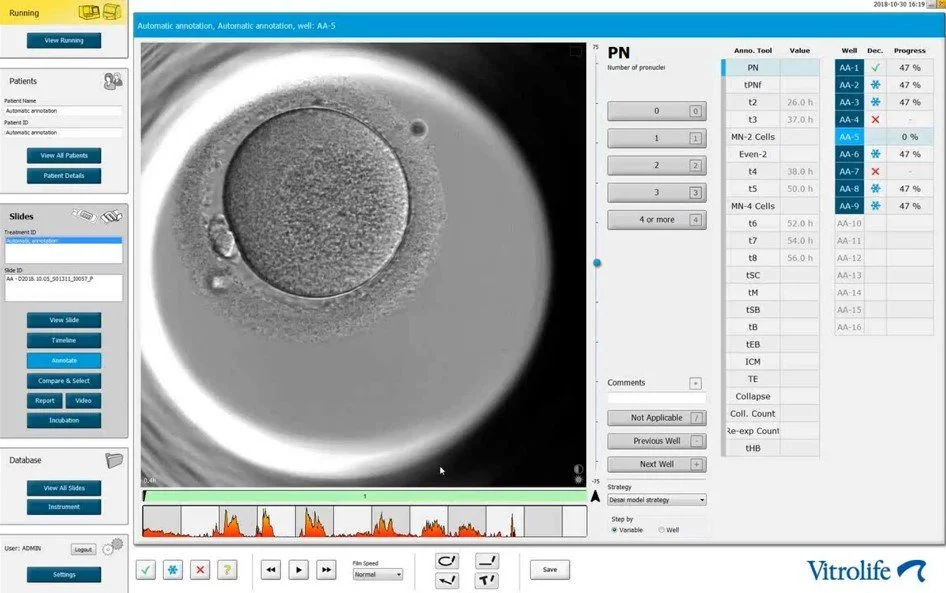
The Kitchen Journal
Welcome to our kitchen journal—a space dedicated to sharing real-life IVF stories and experiences from patients, embryologists, nurses, and physicians. Here, you’ll find unique insights, personal journeys, and lessons you won’t find in generic online resources. It’s a place to connect, learn, and explore the human side of IVF.
Sharing every Tuesday and Thursday, so stay tuned in!
Our 2025 IVF Journey: Patient Triumphs, Scientific Advances & Renewed Hope
Wrapping up 2025 with The IVF Kitchen. A letter to our dedicated readers

TESA/TESE Surgery Recovery Guide: How to Minimize Swelling, Bruising & Discomfort
Recovering from TESA or TESE surgery can involve some swelling, bruising, and discomfort—but the right care can make a big difference. From cold packs to activity restrictions, there are proven ways to ease your recovery. This guide shares practical tips to help you heal smoothly and prepare for the next step in your IVF journey.

From Surgery to IVF: What Happens to Your Sperm After TESE/TESA Extraction?
After a TESE or TESA procedure retrieves sperm directly from the testicles, what happens next? IVF labs carefully process, evaluate, and often freeze the extracted sperm for future use in procedures like ICSI. This guide walks you through each step from surgical recovery to fertilization in the lab.

What are TESE, TESA, MicroTESE, MESA, and PESA? Sperm Extraction Methods for IVF
When sperm can’t be found in a semen sample, advanced surgical techniques like TESE, TESA, MicroTESE, MESA, and PESA offer hope. Each method varies in how and where sperm are retrieved, depending on the underlying cause of infertility. This guide breaks down what each procedure involves and how they support IVF success.

What If Your Partner Has No Sperm: Is IVF Still an Option?
If your partner has no sperm, it can feel like a dead end—but IVF may still be possible. With techniques like surgical sperm retrieval and donor sperm options, there are paths forward. This guide explains your options and how fertility specialists work around azoospermia to help build families.

Can Men Improve Sperm Quality Before Starting IVF: A Science-Backed Guide
Improving sperm quality can boost your chances of IVF success, but where do you start? Backed by science, this guide covers lifestyle changes, supplements, and medical treatments that can enhance sperm health before treatment begins. Discover practical steps to give your fertility journey a stronger foundation.

Pregnancy with Poor Sperm Quality: How IVF Labs Overcome Male Fertility Challenges
Poor sperm quality doesn’t have to mean the end of your parenthood journey. IVF labs use advanced techniques like ICSI and sperm selection to overcome male fertility challenges. This guide explores how embryologists work with low-quality sperm to help make pregnancy possible.

Sperm Quality in IVF: How Sperm Motility and Morphology Impact Success Rates
Sperm quality plays a vital role in IVF outcomes, and two key factors—motility and morphology—can make all the difference. Understanding how well sperm move and how they’re shaped helps embryologists assess fertilization potential. This guide explains how these traits influence success rates and what can be done to optimize them.

Semen Analysis Procedure: How Labs Test Sperm Count, Motility & Morphology
A semen analysis is a vital test in assessing male fertility, and understanding how it works can ease uncertainty. From sample collection to examining sperm under the microscope, labs follow a detailed process to measure count, motility, and morphology. This guide walks you through each step so you know exactly what to expect and how results are determined.

Semen Analysis Report: What Sperm Count, Motility & Morphology Mean
A semen analysis is a key step in evaluating male fertility, but the results can be confusing at first glance. Terms like sperm count, motility, and morphology each reveal something important about reproductive health. This guide breaks down how to read your semen analysis report and what the numbers really mean for your fertility journey.

From Diagnosis to Fatherhood: True Stories of Overcoming Male Infertility
Facing a diagnosis of male infertility can feel overwhelming, but many men have successfully navigated this journey to fatherhood. Through real stories of resilience, innovation, and hope, this guide highlights the emotional and medical paths that lead to success. Discover how couples overcame the odds and built their families despite the challenges.

Male Infertility Explained: Root Causes, Testing & Modern Treatment Solutions
Male infertility is more common than many realize and can stem from a variety of causes, from hormonal imbalances to genetic issues. Testing helps pinpoint the problem, and modern treatments offer effective paths to parenthood. This guide breaks down the root causes, diagnostic tools, and the latest treatment options for male infertility.

Is Assisted Hatching Safe? Evidence-Based Risks vs. IVF Success Benefits
Assisted hatching is a lab technique used to help embryos implant, but is it safe—and does it really work? While it may offer benefits for certain patients, it also comes with risks that should be carefully weighed. This guide breaks down the science, safety, and success rates behind assisted hatching to help you make an informed decision.

Does Embryo Glue Work? Is It Safe and Does It Really Improve IVF Success Rates?
Embryo Glue is often marketed as a way to improve embryo implantation, but does the science back it up? While it's generally considered safe, its effectiveness varies depending on individual cases. This guide explores how Embryo Glue works, its potential benefits, and whether it truly enhances IVF success rates.

IVF Add-Ons: Do ERA, PRP, and Embryo Glue Really Improve Success?
IVF add-ons like ERA, PRP, and Embryo Glue promise to boost success rates—but do they really work? While some patients may benefit, the evidence behind these extras is still evolving. This guide breaks down what each add-on does and whether it's worth considering for your IVF journey.

Bad IVF News? What to Do Next - From the Lab’s Perspective
Receiving bad news during IVF can be heartbreaking—but it doesn’t mean the journey is over. From the lab’s perspective, every result offers valuable insight that can guide your next steps. This guide shares how embryologists interpret setbacks and what options might be available moving forward.

The Future of IVF: How AI is Revolutionizing Embryo Grading and Selection
Artificial intelligence is transforming the way IVF labs grade and select embryos, offering more accuracy and consistency than ever before. By analyzing thousands of data points, AI can help identify embryos with the highest potential for success. This guide explores how AI is shaping the future of IVF and improving outcomes for hopeful parents.

Advances in IVF Lab Technology: Time-Lapse Imaging to Improve Embryo Development
IVF lab technology has come a long way, and time-lapse imaging is one of the most exciting advancements. This tool allows embryologists to monitor embryo development in real time without disturbing growth conditions. This guide explains how time-lapse imaging works and how it can improve embryo selection and IVF outcomes.

Embryo Development: What is the Ideal IVF Timeline and Checkpoints?
Embryo development follows a precise timeline in IVF, with key checkpoints that help embryologists assess progress and potential. From fertilization to blastocyst formation, each day brings important milestones. This guide walks you through the ideal IVF timeline and what to expect at each stage of embryo growth.

How Labs Ensure Quality Control During Embryo Grading
Embryo grading is a critical step in the IVF process, and accuracy is essential. IVF labs follow strict quality control measures to ensure embryos are evaluated consistently and reliably. This guide explores how labs maintain precision during grading to support the best possible outcomes for patients.